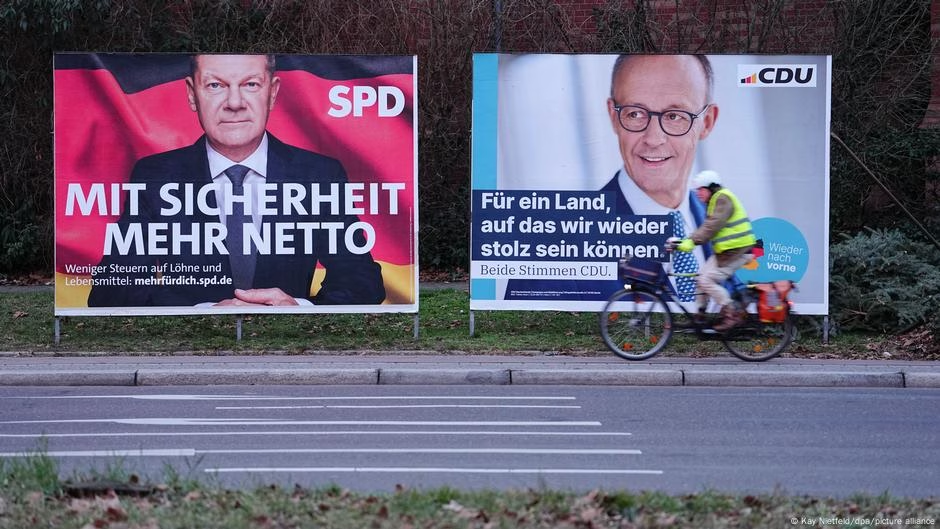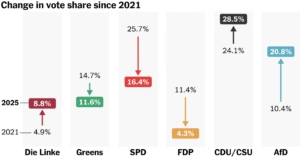The populist right-wing Alternative for Germany (AfD) came in second with 20.8%, followed by the centrist Social Democratic Party (SPD) with 16.4%.
However, the election of Germany’s new chancellor by the Bundestag will not take place until a governing coalition has been formed, which could take several months.
CDU/CSU’s candidate Friedrich Merz is now the frontrunner to succeed Chancellor Olaf Scholz.
Merz has already declared victory, calling for “independence” from the US, stating that the present US administration “mostly doesn’t care about the fate of Europe.”
Party Leaders’ Reactions
Conservative CDU/CSU’s chancellor candidate Friedrich Merz declared his victory in the parliamentary election in Germany, pledging to form a government that “represents the entire republic” and tackles the country’s concerns.
While Chancellor Scholz conceded to the “election defeat” of his party, Green Party’s lead candidate Robert Habeck defended their projected 13% vote share as “respectable.” AfD’s Alice Weidel stated her party’s readiness to enter a coalition government and criticized CDU’s vow not to form a coalition with AfD, noting that CDU has adopted many of AfD’s policies.
Coalition Formation in Germany
The process of forming a coalition can take weeks or even months. Germany was without a government for nearly six months in 2017 due to prolonged coalition negotiations. However, times can move quickly if two parties are involved and their political priorities are closely aligned.
Choosing the German Chancellor
Parties select their main candidate before the election. After voting, parties attempt to form a governing coalition. Once a potential coalition is assembled, the German President proposes a candidate for chancellor to be elected by the members of the Bundestag. The candidate typically needs an absolute majority to be elected in a secret ballot.
Germany’s Election System
The German electoral process is designed to produce coalition governments. Voters cast two votes – the first for a direct candidate from their constituency, and the second for a political party. The latter determines the relative strength of the parties in the Bundestag.
Any party that gains more than 5% of the total vote is guaranteed representation in the Bundestag.
Edited by: Michaela Cavanagh








